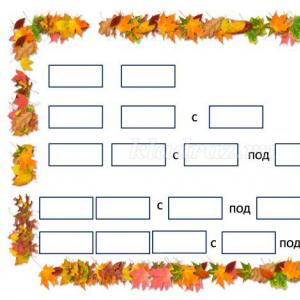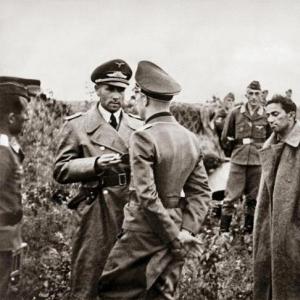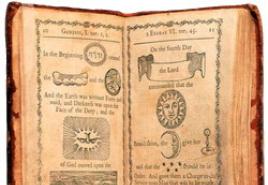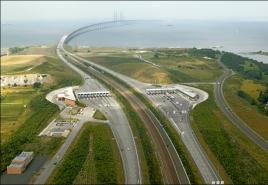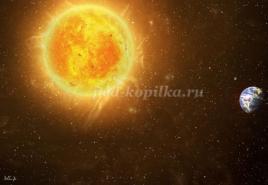Alexey Nevsky biography. Prince Alexander Nevsky was born
Alexander Nevsky (real name Kuritsyn) is a Russian actor, producer, screenwriter and bodybuilder who called himself "Russian Arnold Schwarzenegger". He acted as a producer (and at the same time played a major role) in the action films Moscow Heat, Treasure Hunters, Da Vinci's Fast and the Furious, Murder in Vegas, Showdown in Manila, etc. He became famous among Internet users thanks to the phrases “here so”, “vodka inside, bottle outside”, “absolutely”.Childhood and youth
Sasha was born and raised in a Moscow intelligent family. Father, Alexander Nikolaevich, taught economics and management at the capital's university. Mother, Evgenia Yakovlevna, worked as an instrument engineer.Parents divorced early, and all the worries about the son and eldest daughter fell on the mother. However, with the upbringing of Sasha, she did not have any particular difficulties. The boy learned to read early and spent all his free time reading books. Studying was easy for him, at the same time he attended a music school in the cello class, at the age of eleven he became interested in basketball.

The only thing that overshadowed the life of a teenager was the ridicule and bullying of peers. They teased the thin, puny boy with a “chicken,” laughed at his helplessness in physical education classes, and often beat him in the yard. To learn how to fight back offenders, Sasha enrolled in the boxing section, but did not stay there for long. According to Alexander, by the age of 15, with a height of 194 cm, he weighed 60 kg, and the volume of his biceps barely exceeded 25 cm.
One day he came across a magazine with a photo of Arnold Schwarzenegger on the cover. The young man was so impressed by the muscular body of the actor that from that moment the gym became his second home. Very soon, Alexander achieved good results, took part in various competitions and even became, according to him, the winner of the Moscow championship.
Career
In 1994, the young man graduated from the State Academy of Management, but the glory of Schwarzenegger still haunted him. He changed his last name to the sonorous pseudonym "Nevsky" and began to try to break through on television. In the late 90s, he participated in the programs "Up to 16 and older", "Party Zone", "Theme" and "Good Morning", and also played a tiny role in Eldar Ryazanov's film "Quiet Pools". Soon, American producers became interested in the young bodybuilder and invited him to Hollywood. Alexander did not hesitate for a long time and immediately went to the United States. 
Across the ocean, Nevsky graduated from the Lee Strasberg Theater School, while studying English at the University of California. But he did not wait for significant roles in the cinema, he had to be content with small episodes in extras.

Soon Alexander himself decided to become a producer and in 2010 presented to the audience the film "Murder in Vegas", in which he played a central role. The film disappointed audiences and critics and flopped at the box office. The same fate befell the next picture of Nevsky "Black Rose".

Despite the unflattering reviews, Alexander made another attempt to make a box office movie, but his third film, Showdown in Manila, also failed. In 2017, he starred in the joint Russian-American action movie Maximum Strike, which also did not live up to the hopes of its creators.
Scandals and internet fame
In 2010, Nevsky got into the epicenter of a grandiose scandal, declaring himself the winner of the 1994 Mr. Universe contest. Outraged bodybuilding fans did not ignore this fact and found out that he participated in the consonant, but not so prestigious "Universe" competition, which was held by the WWF fitness federation, and then only in demonstration competitions. 
Shortly after the scandal, nine prominent bodybuilding functionaries signed an open letter "On Nevsky-Kuritsyn", in the text of which it was noted that all the titles of Nevsky were invented by him, that Vladimir Turchinsky, whom Alexander publicly called his follower, did not even hear his name, and that the body Nevsky far from the body of a bodybuilder.

Fuel was added to the fire by a video with Alexander performing simple exercises with the look of an expert, constantly repeating the phrase “like this”. This phrase, by the way, went to the people and became memetic. “He [became] so [freaky] that he called the lifting of dumbbells through the sides “Nevsky's layout,” the athletes were indignant.
55x55 – ABSOLUTLY (feat. Alexander Nevsky)
His film works were not less criticized. In this area, Alexander even has a personal "enemy" - the BadComedian video blogger (Evgeny Bazhenov), a bad movie reviewer. His YouTube channel has reviews of almost every Alexander Nevsky action movie. Yevgeny is convinced that Nevsky absolutely does not know how to act, and his films break all anti-records in terms of the quality of directing and editing.
BadComedian criticizes Nevsky
It was he who noticed with what rapture Nevsky drinks a can of condensed milk in the film "Fast and the Furious Da Vinci", how poorly the actor often filmed in the States knows English (this is where the memes "absolute" and "let's play" came from), and also laughed at the quote "vodka inside, and outside the bottle, ”which Nevsky says in one of the films. BadComedian also drew attention to Alexander's "epic lips" - the actor very often presses them in the frame, apparently to heighten the effect of brutality.

When at the presentation of the film "Showdown in Manila" Nevsky was asked a question about pursed lips, he replied that his colleagues: Chuck Norris, Sylvester Stallone, Arnold Schwarzenegger, are also not all right with facial expressions, because during the filming of dynamic scenes "you can't do lips "duck", especially when you sincerely like it, it's quite difficult.
Alexander Nevsky responds to critics
Alexander Nevsky himself considers the criticism of the blogger unjustified.
The history of our country contains many glorious battles. Some of them have gained particular notoriety. For example, almost anyone in a conversation about famous battles will mention Neva battle and Battle on the Ice. It is not surprising, because thanks to these events, Russia was once able to maintain and protect its borders. But both the Battle of the Neva and the Battle of the Ice could have ended more deplorably if not for the great commander who led our troops - Alexander Nevskiy.
In contact with
short biography
 began May 13, 1221. His father was Yaroslav Vsevolodovich, and his mother was Rostislava Mstislavna. The boy's childhood passed in Pereyaslavl-Zalessky, but it did not last long. Already at the age of nine, Alexander was sent to rule Novgorod along with his brother Fedor. In 1233, Fedor died, and three years later Yaroslav Vsevolodovich left for Kiev.
began May 13, 1221. His father was Yaroslav Vsevolodovich, and his mother was Rostislava Mstislavna. The boy's childhood passed in Pereyaslavl-Zalessky, but it did not last long. Already at the age of nine, Alexander was sent to rule Novgorod along with his brother Fedor. In 1233, Fedor died, and three years later Yaroslav Vsevolodovich left for Kiev.
In this way, Alexander became the sole ruler of Novgorod at the age of 15.
Personal life
 In 1239, the prince found family happiness in Toropets with Princess Alexandra of Polotsk. The wedding took place in the church of St. George. This marriage resulted in the birth of several children:
In 1239, the prince found family happiness in Toropets with Princess Alexandra of Polotsk. The wedding took place in the church of St. George. This marriage resulted in the birth of several children:
- Basil - 1240;
- Dmitry - 1250;
- Andrew - 1255;
- Daniel - 1261;
- Evdokia.
Neva battle
 Alexander began to be called Nevsky, thanks to battle on the Neva. This battle brought the prince worldwide fame. The Battle of the Neva took place in 1240 on the banks of the Neva River. The battle was against the Swedes, who wanted to capture Pskov and Novgorod. It is noteworthy that Alexander's army, without the support of the main army, was able to defeat the enemy. Before the battle, the prince went out to the troops with words of support, which have survived to this day thanks to the annals.
Alexander began to be called Nevsky, thanks to battle on the Neva. This battle brought the prince worldwide fame. The Battle of the Neva took place in 1240 on the banks of the Neva River. The battle was against the Swedes, who wanted to capture Pskov and Novgorod. It is noteworthy that Alexander's army, without the support of the main army, was able to defeat the enemy. Before the battle, the prince went out to the troops with words of support, which have survived to this day thanks to the annals.
These words inspired the warriors, and they were able to win a confident and crushing victory. The Swedes suffered huge losses and were forced to retreat.
In spite of successful outcome of the Neva battle, Alexander had a conflict with the Novgorodians, and the prince was forced to leave the city. But in 1241, the Livonian Order, consisting of German and Danish troops, invaded the territory of Novgorod. Novgorodians were forced to turn to the prince for help. Alexander did not disappoint - having come with his army, he liberated the cities captured by the Livonian Order, and then led his troops to the enemy border. There, on Lake Peipus, the decisive battle took place.
Battle on the Ice
 April 5, 1242 on the ice of Lake Peipsi met the troops of Alexander Nevsky and the Livonian Order. Thanks to the cunning tactics of the prince, the enemy troops were surrounded from the flanks and defeated. The remnants of the detachments tried to escape from the battlefield, running away across the frozen lake. For 7.4 km they were pursued by princely troops.
April 5, 1242 on the ice of Lake Peipsi met the troops of Alexander Nevsky and the Livonian Order. Thanks to the cunning tactics of the prince, the enemy troops were surrounded from the flanks and defeated. The remnants of the detachments tried to escape from the battlefield, running away across the frozen lake. For 7.4 km they were pursued by princely troops.
There are several versions of this chase. Very popular information is that the soldiers of the Livonian Order were dressed in heavy armor. The thin ice of Lake Peipus could not bear their weight and cracked. Therefore, most of those enemies who survived drowned. However, Wikipedia mentions that this information appeared only in later sources. But in the records made in the coming years after the battle, nothing is said about this.
Anyway, The battle on the ice was decisive. After him, a truce was concluded and for the cities of Russia there was no longer a threat from the Order.
Years of government
 Alexander became famous not only for victories in famous battles. He understood that battles alone were not enough to protect the country. Therefore, in 1247, after the death of Yaroslav Vsevolodovich, Alexander went on a visit to the Horde Khan Batu. The negotiations were successful, so the prince received the Kiev principality in control, and his brother Andrei - Vladimir.
Alexander became famous not only for victories in famous battles. He understood that battles alone were not enough to protect the country. Therefore, in 1247, after the death of Yaroslav Vsevolodovich, Alexander went on a visit to the Horde Khan Batu. The negotiations were successful, so the prince received the Kiev principality in control, and his brother Andrei - Vladimir.
In 1252 Andrei renounced the principality of Vladimir and fled. This almost provoked a new conflict with the Tatar-Mongols, but Alexander again paid a visit to the Horde. Thus, he achieved the opportunity to manage the Vladimir principality.
In the future, Alexander continued to adhere to the same line of behavior. This policy is perceived in two ways by society. Many considered and consider Nevsky practically a traitor, not understanding why he was constantly in contact with the Horde. In addition, Nevsky not only visited the khans, but also contributed in every possible way to the implementation of their plans. For example, in 1257, Alexander helped the Horde to conduct a census of the population of Russia, against which the whole people were. And in general, in relations with the Tatar-Mongols, he showed humility and, without stint, paid tribute.
On the other hand, thanks to such a policy, he was able to free Russia from the obligation to provide the Horde with troops for military campaigns and saved the country from the Tatar-Mongol raids. The main thing for him was the survival, both of his own and of the whole people. And he successfully coped with this task.
Death
During the next visit to the Tatar-Mongols, which took place in 1262, Prince Alexander Nevsky became very ill. By the time he returned to his homeland, his condition was very serious. Before his death, the prince managed to accept Orthodoxy under the name of Alexy. His life ended on November 14, 1263, the funeral took place in the Vladimir Nativity Monastery.
Curious facts

In scientific, reference and popular literature, the life of Alexander Nevsky is determined by 1220-1263. The last date is indisputable, since it is contained in such a source as the parchment Novgorod Chronicle I of the older version. The death of Nevsky is described there under the year 6771, even the day of death is indicated - November 14, and then his burial in Vladimir is reported on Friday, November 23. This combination of the last number and day of the week in article 6771 leads to November 23, 1263 (modern reckoning). Therefore, the date of death is also beyond doubt - November 14, 1263.
If the day of the death of Alexander Yaroslavich is directly named in the source, then the time of his birth is determined by research. It seems that V.N. was the first to do this. Tatishchev, who, when describing the events of 1219, introduced the following message into his “History of Russia”: “Maia 30, a son was born to Prince Yaroslav and named Alexander in holy baptism.” As shown below, the output of V.N. Tatishchev, the date is incorrect, although researchers of the 18th-19th centuries used it, changing only the year of birth to 1220.
Determining the year of Nevsky's birth depends on what kind of a child he was in the family of Yaroslav-Fyodor Vsevolodovich and Rostislava-Feodosia Mstislavovna and when his brothers were born. The sons of Yaroslav Vsevolodovich are listed in many chronicles and genealogical lists. The most ancient list is placed in the Laurentian Chronicle under 1239; it names six sons of Yaroslav who survived the Batu pogrom: Alexander, Andrey, Konstantin, Athanasius, Daniel, Mikhail. Most of them are mentioned in the articles of the following years of the same Laurentian Chronicle.
Daniel is named in the annals only once more: the Novgorod IV chronicle under 1256 marked his death. The name of Athanasius Yaroslavich is not found at all in the annals. But under 1252, for the first time after 1239, Yaroslav is mentioned, about whom, under 1254, it is directly said that he was the son of Yaroslav Vsevolodovich. Since on the front side of the seals of Yaroslav Yaroslavich, St. Athanasius of Alexandria, it is clear that Yaroslav's baptismal name was Athanasius. And since by 1252 Yaroslav Yaroslavich was already married and had children, it is obvious that he was born in pre-Mongolian times, and it was he who was understood in the list of sons of Yaroslav Vsevolodovich of the article of 1239 of the Laurentian Chronicle under the name of Athanasius.
The following enumeration of the sons of Yaroslav Vsevolodovich in antiquity is contained in the article “Genealogy of the same princes” attached to the Novgorod I Chronicle, the basis of which, according to A.A. Shakhmatov, was compiled in 1433-1434. In this article, the sons of Yaroslav Vsevolodovich are listed in the following order: “Sons of Yaroslavl: Alexander, Yaroslav, Andrei, Kostyantin, Afanasy, Danilo, Mikhailo, Vasily.” Comparing both lists, it is easy to make sure that they generally agree: the sons of Yaroslav Vsevolodovich are named in the same sequence, but in the second, the name of Yaroslav is inserted between Alexander and Andrei, which the compiler of the 15th century article found in the text of the chronicle, but did not identify with Athanasius; the last is the name of Vasily, who was born in 1241, and therefore not mentioned in the article of 1239 of the Laurentian Chronicle.
Subsequent Russian medieval genealogists expanded the list of sons of Yaroslav Vsevolodovich. One of the lists of the end of the 15th century read: “Yaroslav’s sons: Theodore, 11. Alexander, Andrey, Kostyantin, Afonasey, Danilo, Mikhailo, Yaroslav, Vasily Kostroma” [The number 11 in the name of Alexander denoted the serial number of the Grand Duke, starting with Rurik] . Compared with the genealogical article of 1433-1434. in this listing there is one, but significant clarification: the eldest son of Yaroslav Vsevolodovich Fedor is indicated, who died on July 10, 1233. The split of Yaroslav-Athanasius in the genealogy of the painting of the late 15th century was preserved, although the name Yaroslav no longer followed the name Alexander, but the name Michael. This list became canonical and entered the genealogical lists and books of the 16th-17th centuries.
In all the considered lists of the sons of Yaroslav Vsevolodovich, Alexander Nevsky is mentioned in the first place, if we are talking about the time after the Batu invasion, or in the second, if we are talking about all the sons of Yaroslav. Summarizing the evidence of the lists, we can conclude that Alexander was the second son of Yaroslav.
However, all the considered lists of the sons of Yaroslav Vsevolodovich are incomplete. He had another, ninth, son. Describing the capture of a number of northeastern Russian cities, including Tver, by the hordes of Batu in February-March 1238, the Novgorod I Chronicle of the senior version reports that "the same son Yaroslavl killed." Since Tver was part of the Pereyaslavl-Zalessky principality that belonged to Yaroslav Vsevolodovich, there is reason to believe that we are talking about the death of the unnamed son of Yaroslav Vsevolodovich. If Yaroslav entrusted the defense of Tver to this son, then by 1238 he should have been old enough. But was he older or younger than Alexander Yaroslavich, who took refuge in 1238, together with his father and other brothers, from Batu's thunderstorm in Novgorod the Great?
It is not easy to answer such a question, but, judging by some indirect signs, Alexander was older. Of all the sons of Yaroslav Vsevolodovich, only Fedor and Alexander in the pre-Mongolian period were given certain administrative powers by their father, and after the unexpected death of the very young Fedor, Alexander, the only one of the brothers, received the princely table in 1236. Alexander's brother, who was not named by name, was entrusted with independent actions only in 1238, while the rest of the brothers labored in the military and political fields already in the post-Mongolian period. This circumstance confirms that Alexander was the second son in the family of Yaroslav Vsevolodovich.
Fedor was older than Alexander. Chronicles noted the birth of Yaroslav's firstborn, as well as the birth of his last son Vasily. Nothing is said about the time of birth of the other seven Yaroslavichs. The birth of Fedor is reported in the Laurentian Chronicle. The last, highlighted in cinnabar, entry of the article of 6727 testifies that “the same summer Yaroslav was born a son and called his name Theodore.” Based on the date of Fedor's birth, the researchers also determined the time of Alexander's birth, which is basically correct. Only the year of Fedor's birth was calculated by them by mechanical subtraction of 5508 years "from the creation of the world" from 6727. It turned out the year 1219, and from here the time of Alexander Nevsky's birth was derived: not earlier than 1219 or (as was done much more often) 1220. Meanwhile, the year 6727 of the Laurentian Chronicle is March. It covers the period from March 1, 1219 to February 29, 1220 of the modern chronology.
The firstborn of Yaroslav Vsevolodovich received his name either in honor of Fyodor Stratilat or in honor of Fyodor Tiron. Both were commemorated in February; Obviously, Fyodor Yaroslavich was born in this month. The latter is indirectly confirmed by the annalistic record of his birth, placed at the end of article 6727 of the Laurentian Chronicle. February fell already in January 1220. Consequently, Fedor was born in February 1220, and therefore Alexander Nevsky could not have been born in May 1220. In general, it is unlikely that he was born in the same year as his older brother. Rather, it happened later, but not much, since in 1236 Alexander already reigned in Novgorod.
Sphragistics helps to clarify Alexander's date of birth. On the seals of this prince, on the front side, there is an image of a foot or equestrian warrior and the inscription "Alexander", and on the reverse side there is also a warrior and the inscription "Fedor". In other words, on the front side of the seal is the heavenly patron of Alexander himself, and on the back is the patron of his father Yaroslav Vsevolodovich, in baptism Fyodor. Regarding what kind of Alexander the warrior was depicted on the front side of the Alexander bulls, N.P. Likhachev wrote that this was Alexander of Egypt, and V.L. Yanin left the question open.
Guess N.P. Likhachev raises objections. In ancient (until the 13th century) Byzantine and Slavic minologies Saint Alexander is mentioned, but only four of them were warriors. Two warriors of Alexander were commemorated on July 9 and September 28; one (Alexander of Egypt), together with Patermuth and Kopriy, whose memory was celebrated in the first place, the other - among 30 soldiers. Alexander's parents could hardly name their son in honor of some third-rate saint, whose memory was celebrated together with a group of saints, and even not in the first place, especially since in pre-Mongol Russia this name was given to princes extremely rarely [Suffice it to say that, apart from Alexander Nevsky, only one Rurikovich wore it - the South Russian prince Alexander Vsevolodovich].
Obviously, Alexander Nevsky is named after such a saint, Alexander the Warrior, whose memory was celebrated especially, individually, without connection with other saints. Only two more dates can be taken into account here: May 13 and June 10. On May 13, the memory of the warrior Alexander of Rome was celebrated, and on June 10, the memory of the warrior Alexander and the maiden Antonina. Tatishchev, apparently, set the date of Alexander's birth according to the day of the celebration of Alexander the Warrior and preferred May 13 to all other dates, which, when rewriting his drafts, turned into the date May 30. And Tatishchev's decision seems to be correct. On May 13, Alexander alone is celebrated, and on June 10, Alexander and Antonina. There is a clear indication that during the time of Alexander Nevsky in Russia, the memory of Alexander of Rome was celebrated. So, in the article of 1243 of the Novgorod I chronicle of the senior version, a sign was described that happened on May 18 "in memory of the holy martyr Alexander." We are talking about Alexander of Rome, although a mistake crept into the date, easily explained paleographically: the copyist wrote ni (18) instead of ri (13) according to the old Russian account. Judging by the early minologies, the celebration of Alexander of Rome was much more widespread than the celebration of Alexander and Antonina.
Thus, of the two possible dates (May 13 and June 10), the former should be preferred. Considering that Alexander Nevsky was born immediately after Fedor, the most probable date of his birth can be considered May 13, 1221. It follows that the two victories that glorified Alexander Nevsky - over the Swedes on July 15, 1240 and over the German knights on April 5, 1242 - were won by this commander when he was 19 years old and incomplete 21 years old.
Alexander Yaroslavich Nevsky (Old Russian Oleksandr Yaroslavich, monastic Alexy). Born May 13, 1221 in Pereslavl-Zalessky - died November 14, 1263 in Gorodets. Prince of Novgorod (1236-1240, 1241-1252, 1257-1259). Grand Duke of Kiev (1249-1263). Grand Duke of Vladimir (1252-1263). Russian commander. Holy Russian Orthodox Church.
According to the results of a large-scale survey of Russians on December 28, 2008 (a project of the Rossiya TV channel and VID Television Company, aimed at choosing significant personalities associated with Russia by voting Internet users, TV viewers and radio listeners), Alexander Nevsky was chosen "the name of Russia".
By the decision of the Patriarch of Moscow and All Russia Kirill in 2016 Alexander Nevsky is designated as the patron saint of the Ground Forces of the Russian Federation.

1984 - Mr. Veliky Novgorod - in the role of Alexander Nevsky, actor Alexander Franskevich-Laye;
1991 - The Life of Alexander Nevsky - in the role of Alexander Nevsky, actor Anatoly Gorgul;
2008 - Alexander. Battle of the Neva - in the role of Alexander Nevsky actor;
2015 - Druzhina - in the role of Alexander Nevsky, actor Nikita Morozov.
Preventive war - suicide for fear of death
Otto von Bismarck
The holy noble prince Alexander Nevsky won fame for himself during his lifetime. Legends were made about him, his enemies were afraid of him and his compatriots revered him. After his death, the name of Alexander Nevsky entered the national history as an outstanding commander who, with the sword and fortitude, preserved Orthodoxy and the identity of the Russian people on Russian soil. Thanks to the Grand Duke, the Slavic people began to rally in order, following the example of Alexander Nevsky, to fight the threat in the West and resist the mighty Horde.
In the article, we will dwell in detail on the main deeds of the holy prince, thanks to which he was canonized (in 1547) and is still considered by Russians to be one of the people who magnified our Motherland throughout its history. There are 4 such events:
This happened when Prince Alexander was only 13 years old. By today's standards, quite a child, but already at this age, Alexander, together with his father, already fought against the German knights. In those days, instigated by the Pope, Western European knights carried out cross raids officially to convert "infidels" to Catholicism, but in reality to rob the local population and seize new territories.
Russian cities (Pskov, Novgorod, Izborsk) for a long time were the goal of the German order, because trade and architecture were developed here. The knights are not averse to profiting: someone to sell into slavery, someone to rob. To protect the Russian lands, Prince Yaroslav calls on the people to stand with him in defense of the Motherland. Watching the course of the battle, young Alexander, along with adults, fights against enemies, at the same time analyzing the behavior of the troops and defense tactics. Yaroslav Vsevolodovich bets on a protracted battle, and wins the battle. Tired knights are finished off with flanking blows, others run to the river, but the thin ice does not withstand heavy knights, it cracks, and the knights in their armor go under water. Novgorodians win a victory that went down in history as the Battle of Omovzha. Alexander learned a lot in this battle and used the tactics of the battle of Omovzha many times later.
Battle of the Neva (1240) for the prince
In July 1240, the Swedish Vikings approached the confluence of the Izhora and Neva rivers on their boats and set up camp. They arrived to attack Novgorod and Ladoga. According to the chronicles, about 5 thousand Swedish invaders arrived, and Alexander managed to gather only 1.5 thousand warriors. It was no longer possible to delay. While the Swedes are in the dark and are only preparing for an attack, it was necessary to get ahead of them by attacking unexpectedly at their place of deployment.
Alexander with his small retinue settled in the forest not far from the Swedes. Even the Swedes did not have sentries, and the Vikings themselves were engaged in arranging the camp. Alexander, after carefully studying the location of the enemies, decided to divide the army into three parts: the first was to move along the coast, the second, the cavalry, led by Alexander himself, should advance in the center of the camp, and the third, the archers, remained in ambush to block the retreating path. the Swedes.

The morning attack of the Novgorodians came as a complete surprise to the Swedes. The Novgorodian Mishka managed to approach the tent, where the command sat, unnoticed, and sawed off the leg. The tent fell along with the generals, which caused even more panic among the Swedes. When the Varangians rushed to their augers, they saw that they were already occupied by the Novgorodians. The path was completely cut off when the archers entered the battle.
The Novgorod chronicle speaks of huge losses in the Swedish camp, and only 20 people were killed in the Russian regiment. Since that time, Alexander began to be called Nevsky in honor of the river, where he won his first significant victory. His fame and influence in Novgorod increased, which was not to the taste of the local boyars, and young Alexander soon left Novgorod and returned to his father in Vladimir. But even there he does not stay long, and moves to Pereslavl. However, already in the next 1241, Alexander received news from the Novgorodians that again the enemies approached their native lands. The Novgorodians called on Alexander.
Battle on Lake Peipsi - Battle on the Ice - 1242
The German knights managed to capture a number of Russian lands and settle there, erecting characteristic knightly fortifications-fortresses. In order to liberate the Russian cities, Prince Alexander Nevsky decided to unite the people to strike at the invaders with a single force. He calls on all Slavs to stand under his banner to fight the Germans. And he was heard. Militias and warriors flocked from all cities, ready to sacrifice themselves for the sake of saving their homeland. In total, up to 10 thousand people united under the banner of Alexander.
Kaporye is a city that has just begun to be settled by the Germans. It was located a little further from the rest of the captured Russian cities, and Alexander decided to start with it. On the way to Kapor, the prince orders to take prisoner all the people he meets, in order to know for sure that no one will be able to inform the knights about the approach of the prince's army. Having reached the walls of the city, Alexander knocks out the gate with many pounds of logs and enters Kaporye, which surrenders without a fight. When Alexander approached Pskov, the inhabitants themselves, inspired by Alexander's victories, open the gates for him. The Germans are gathering the best forces for battle.
The battle on Lake Peipus will go down in history as the Battle of the Ice. Alexander Nevsky, considering the strategy of the battle, placed in the center numerous militias who did not know much about the tactics of battle. The main army was located in front of a steep bank, behind which were carts, fastened together by chains. On the flanks were the Novgorod regiments - the strongest of the entire ten-thousandth Russian army. And behind a rock that stuck out of the water, Alexander hid an ambush regiment. The holy prince arranged his people in such a way as to lure the knights into the "cauldron", realizing that, having first defeated the weak militias, even if they were numerous, the already tired Germans would go out to the best Russian regiment and carts, and considering how much the knight in armor had, then they will have practically no chance to get over the cart.

On April 5, 1242, the German knights completely "justified" Alexander's calculations. The Germans advanced in a "wedge", and, having defeated the militias, they went straight to the advanced detachments of Nevsky. Caught in a vice, on the one hand - carts, over which the horses could not jump over, having such a weight in the form of a knight in armor, and on the other - Alexander's warriors and Novgorodians from the flanks. The knights, who, wielding a spear, always hit the enemy directly, did not expect a blow from the flanks. It was not possible to turn 90 degrees with the horse thanks to the vise from the carts, where the German knights landed. The ambush regiment completed the defeat of the German knights. The Germans rushed in all directions along the thin ice of Lake Peipus. The thin ice cracked, carrying heavy German knights under the water, just as it had once carried away their ancestors on Omovzha.
It was a brilliant strategy of the young Russian commander. The Germans learned a lesson, thanks to which they forgot the way to Russia for a long time. 50 prisoners of war marched bareheaded through the streets of Russian cities. This for medieval knights was considered a terrible humiliation. The name of Alexander Nevsky thundered throughout Europe as the best commander of the Northern lands.
Relations with the Golden Horde
In the Middle Ages, for the Russian lands, the Horde was a real punishment. A strong state with extensive trade and a mobile army. The cohesion of the Mongol-Tatars, the Russian principalities could only envy. Scattered Russian cities and principalities only paid tribute to the Horde, but could not resist it. Alexander was no exception. Even after all the brilliant battles held, to go against the Horde, as Prince Chernigov did, means to sign a death sentence for himself and his people. After the death of his father Yaroslav, who, by the way, died when he “visited” the khan, Alexander also went to Batu get a label for the khan's service. Enlisting the support of the Horde was for the Russian princes as a ritual, which is tantamount to coronation to the throne.
Could Alexander have done otherwise?! Probably could. The Western European powers, led by the Pope of Rome, offered their help more than once in the fight against the Horde in exchange for the adoption of Catholicism, but Alexander refused. The prince preferred to pay tribute to the Horde than to change the faith of his ancestors. The horde treated the Gentiles quite tolerably, the main thing is that the quitrents go into the treasury regularly. So Alexander chose the lesser evil, he believed.

In 1248, Prince Alexander Nevsky received a label on Kiev and the whole Russian land. A little later, Vladimir also moved to Nevsky. While Russia regularly paid tribute to Batu, the Mongol-Tatars did not attack. Accustomed to living in peace, the Russian people forgot about the Horde threat. In 1262, the Tatar ambassadors who arrived for tribute in Pereslavl, Rostov, Suzdal and other cities were killed. To calm the conflict, the prince is forced to go to the khan. In the Horde, the prince fell ill on the way home. 41-year-old Alexander died.
After 300 years, the Russian Orthodox Church canonized Alexander Nevsky.


